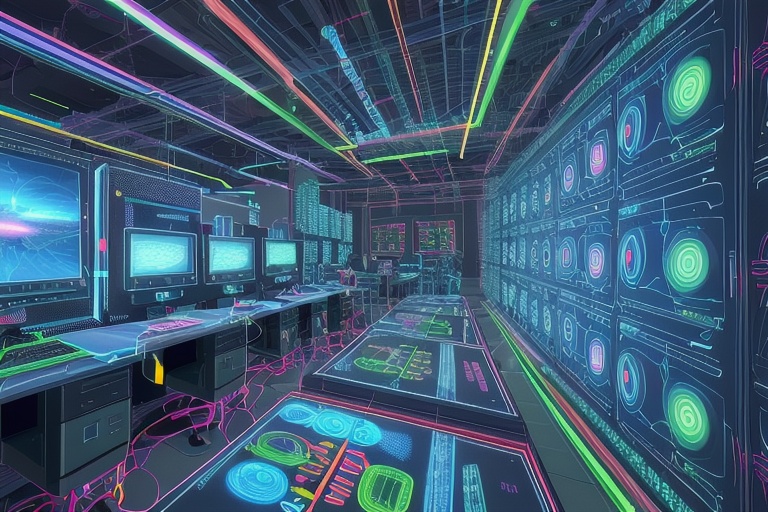Artificial intelligence (AI) has rapidly evolved from a nascent concept into a transformative force across numerous industries. The journey of AI, from its origins in the mid-twentieth century to today's groundbreaking applications, reveals the continual advancements that have been reshaping our world. As we examine the history of AI, we also look forward to some of the most promising trends that are emerging in this dynamic and rapidly advancing field.
Artificial intelligence (AI) has rapidly evolved from a nascent concept into a transformative force across numerous industries. The journey of AI, from its origins in the mid-twentieth century to today's groundbreaking applications, reveals the continual advancements that have been reshaping our world. As we examine the history of AI, we also look forward to some of the most promising trends that are emerging in this dynamic and rapidly advancing field.
The Beginnings: From Conceptualization to Early Research
The idea of artificial intelligence was born in the 1950s, a period marked by intellectual curiosity about the potential of machines to mimic human thought processes. Initially, AI research was concentrated on problem-solving methods and symbolic systems, laying the groundwork for future advances. This research sought to understand how machines could perform tasks that, until then, were considered solely within the domain of human intelligence.
The Era of Neural Networks and Machine Learning
During the 1950s to 1970s, researchers were captivated by the potential of neural networks—a concept where computer systems were designed to emulate the human brain's pattern recognition and problem-solving abilities. Despite the enthusiasm, the technology of the time limited the realization of these ambitions. It wasn't until the 1980s that machine learning, an approach that enables computers to learn from and make decisions based on data, began to gather momentum and public interest. The ability of these systems to analyze large quantities of data and to recognize complex patterns significantly changed the landscape in sectors such as healthcare, finance, and marketing.
Deep Learning: A Paradigm Shift in AI
The advent of deep learning marked a paradigm shift in AI's capabilities. With structures inspired by the human brain, deep learning neural networks analyze and interpret complex data with remarkable effectiveness. The fruits of this technology are evident in our everyday lives, from speech recognition when we converse with voice assistants to precise image classification that helps in medical diagnostics.
AI in Healthcare: A Vision for the Future
One of the most profound impacts of AI is anticipated in the field of healthcare. Here, AI has the potential to revolutionize every aspect, from disease diagnosis to the formulation of individualized treatment plans. Cutting-edge AI models are already displaying their capacity to identify illness at nascent stages. Such early detection is crucial, as it can lead to timely interventions, thereby drastically improving patient prognosis.
Retail Revolution: AI-Powered Personalization
AI’s application in retail is transforming the consumer experience. With intelligent recommendation systems, retailers can now analyze customer preferences and behaviors, providing highly personalized suggestions. The result is a shopping experience finely attuned to individual tastes, leading to greater customer loyalty and sales growth.
Across Industries: AI’s Wide-Reaching Impact
Beyond healthcare and retail, AI's influence extends to finance, where it aids in detecting fraudulent activities and streamlines investment decisions. It is also revolutionizing transportation, with autonomous vehicles set to redefine travel safety and efficiency. In manufacturing, AI-driven predictive maintenance ensures machinery operates at peak efficiency, preventing costly downtimes.
Dispelling Myths: AI as an Augmentation of Human Potential
Contrary to the dystopian visions often presented in popular culture, the reality of AI is not about humanoid robots usurping human society. Instead, AI technologies are primarily designed to augment, not replace human capabilities. They serve as powerful tools that can boost productivity, enhance decision-making processes, and tackle complex challenges that are beyond the scope of unaided human intelligence.
Looking Ahead: Ethical and Responsible Advancements
As AI continues to evolve, the focus must remain on developing these technologies responsibly and ethically. The history of AI is a chronicle of human ingenuity, marked by notable breakthroughs and the promise of even greater achievements to come. With the onset of emerging trends in healthcare, retail, finance, and beyond, AI's role in our future is not only assured but is bound to be profound. Embracing AI's potential responsibly will ensure that its advancements remain beneficial for society at large.
In summary, artificial intelligence has journeyed from a theoretical exploration to a powerful, practical tool, permeating various facets of modern life. Its history is filled with milestones that have reshaped industries and innovation. The new trends on the horizon in healthcare, retail, finance, and more promise to further integrate AI into our daily existence. Understanding and navigating this rapidly growing field requires a commitment to continual learning and responsible application. As AI reshapes our future, let us guide its growth with attention to its ethical implications and potential to serve the greater good.
Information for this article was gathered from the following source.

